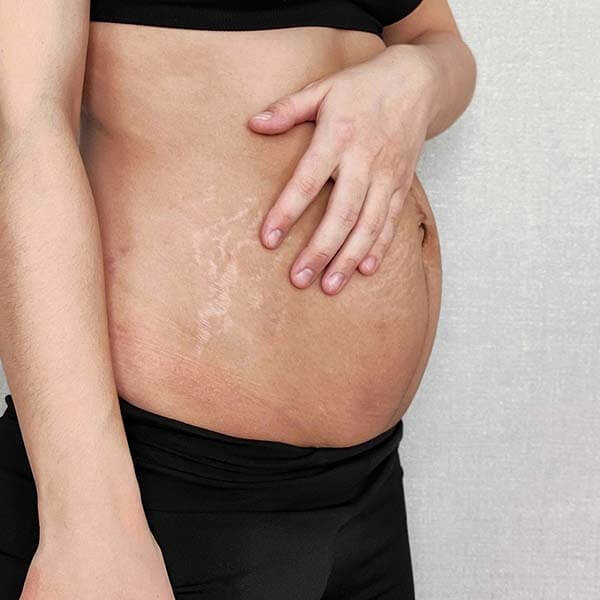
Postpartum recovery is the healing process that takes place after childbirth. It affects both your body and your emotions. Knowing what to expect during this time can help you feel more prepared. Visit the DOXXES store on North Freeway / FM 1960 for helpful products that support you during postpartum healing.
What Is Postpartum Recovery?
Postpartum recovery includes physical and emotional changes that happen after giving birth. Doctors may describe different types of recovery:
- Superficial: Involves skin, muscles, or external tissues
- Deep: Affects ligaments or internal organs
- Provoked: Pain triggered by movement or physical contact
Each person’s recovery looks different and may involve one or more of these.
Why Does Postpartum Recovery Happen?
After delivery, your body goes through many changes. These include:
Emotional or mental causes:
- Stress about caring for a baby
- Worry over how your body has changed
- Birth trauma or complications
- Lack of emotional support
Physical causes:
- Hormonal shifts
- Vaginal tears or C-section scars
- Pelvic floor weakness
- Infections or poor healing
Recovery can be physical, emotional, or a mix of both.
Examples and How to Spot Triggers
Common postpartum issues:
- Pain at the C-section scar while lifting or bending
- Pelvic muscle spasms when standing too long
- Heavier discharge during week two
- Hip pain while feeding or changing the baby at night
How to track triggers:
- Write down symptoms and when they appear
- Notice if certain tasks make symptoms worse
- Try using pillows or support tools to ease tension
Who It Affects
Postpartum recovery mostly affects the birthing parent but can also impact partners and family life. Mood shifts, sleep loss, and hormone changes can affect how you feel, both physically and emotionally. Partners may also feel stressed or unsure about how to help, which can cause relationship strain.
How a Sex Therapist Can Help
A sex therapist can offer support during recovery by:
- Reviewing your emotional and sexual history
- Identifying stress, anxiety, or depression
- Helping you rebuild intimacy in safe, healthy ways
- Improving communication between you and your partner
How to Cope and Heal
Therapy and Counseling
Professional therapy can help you talk through fears, emotions, or trauma after childbirth.
Healthy Habits
Rest, gentle movement, and staying hydrated support physical healing.
Pelvic Floor Work
Kegel exercises or guided programs help regain control and comfort.
Sexual Wellness Products
Lubricants, pelvic floor tools, or gentle massagers can help you feel more at ease during intimacy. Always ask your doctor before starting anything new.

How DOXXES Can Help
At DOXXES, you’ll find products made for postpartum wellness, such as:
- Water-based lubricants for vaginal dryness
- Pelvic floor trainers to regain strength
- Gentle vibrators to support healing
- Prostate massagers for partners or shared comfort
All products come with clear instructions and safety tips. Many new parents use them alongside therapy for better results.
Talking About Postpartum Recovery
Communication is important during recovery. You can say:
- “I feel overwhelmed right now.”
- “Let’s check in about what’s working and what isn’t.”
- “Can we read about this together?”
Pick a quiet moment to talk, use “I” statements, and don’t be afraid to ask for help.
Visit DOXXES on North Freeway / FM 1960
Our store offers a private, supportive space where you can explore solutions and ask questions. Our staff is trained to help you find the right products for postpartum comfort, healing, and intimacy.
Conclusion
Healing after birth takes time, care, and support. Whether you're managing physical changes, emotional shifts, or relationship adjustments, you are not alone. With the right tools and open conversations, recovery becomes easier. Visit DOXXES on North Freeway / FM 1960 to find products and advice tailored to your needs.
FAQs
- When can I have sex after childbirth?
Most people wait around 6 weeks, but it depends on how you feel and what your doctor says. - Why does sex feel different after delivery?
Tissue changes, hormonal shifts, and soreness can all change how sex feels. - Is it normal to have low desire after birth?
Yes. Hormones, lack of sleep, and stress can lower libido for a while. - Does breastfeeding affect sex?
Yes. Lower estrogen levels can cause dryness and reduce sexual interest. - What if sex hurts after giving birth?
Use lubricant, go slow, and speak to your doctor if pain continues. - Should I do Kegels after delivery?
Yes. Pelvic floor exercises can improve bladder control and muscle tone. - Can postpartum depression affect intimacy?
Absolutely. It can reduce desire and make it harder to connect. Support is key. - Will my body go back to how it was?
There may be changes, but many heal over time with care and support. - How can partners help?
By being patient, listening, and offering help emotionally and physically. - When should I get medical help?
Call your provider if pain, bleeding, or emotional symptoms become intense or don’t go away.
